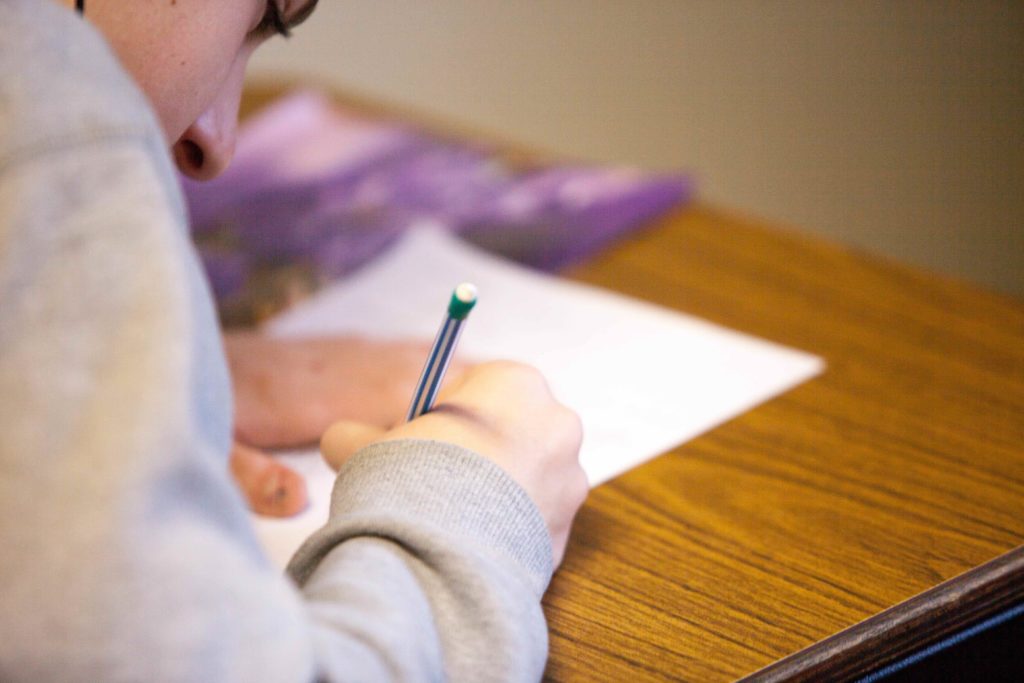What’s Up With SAT & ACT Testing?

Welcome back to Wish-I-Knew Wednesday! Today’s article has some insight on SAT and ACT testing.
Today’s bloggers are Raquel Mendoza, an 2014 EDGE Alumni currently attending Notre Dame de Namur University, and Daniel Shinners, a UCLA graduate and SAT tutor.
What is your personal experience with this topic?
Raquel: I took both the SAT and ACT when I was in high school. I also work in the admissions office at my university and I’ve seen first hand how college admissions officers use scores to determine if a student would be a good fit for a university.
Daniel: I have never personally taken the ACT, but I have been an SAT tutor for three years, and have taken the test more times than I can count.
What are the ACTs and SATs?
Raquel: The SAT and ACT are two different standardized tests to see a student’s knowledge level on the things they have learned in high school. Students are tested on the core subjects: math, english, science, reading, and writing and are given a score based on the number of questions they answer correctly. These scores are then sent to colleges and universities and are used as a material to determine whether or not a student is admitted to a school.
Why are the ACTs and SATs so important? Why should we care?
Raquel: While SATs and ACTs aren’t fun or easy, they are one of those things that are necessary to be admitted to a four year institution. These tests are one way for a school to see if you are the best fit for their institution, to see where you stand academically. Your results help college and university admissions officers determine where your academic abilities lie and help them paint a full picture of you as a student.
Daniel: The ACT and SAT are useful tools to help you open more doors when applying to colleges. Good scores can help you stand out, but there are dozens of other factors that colleges consider when looking at applicants. After getting into college, your test scores will have absolutely no bearing on your life whatsoever (unless you become a tutor) so it’s best not to stress over them too much.
Timeline—When should students implement this?
Raquel: Start taking practice SATs and ACTs sophomore year of high school. I took my first practice tests October of my sophomore year, and again October of my junior year. I took the official exams at the end of my junior year. This was the best time for me because I had all of the information I learned junior year fresh in my head for the tests. Taking the tests upon conclusion of my junior year allowed for enough time for me to take them again if I needed to.
Raquel, what is your advice for people preparing to take these tests?
Take both tests! See which one you do better on and focus your energies on studying for that one when you take it again.
Get plenty of sleep and eat a good breakfast when test day comes, and bring snacks!! When you get a break, don’t stay sitting in the room, get up and walk around. The tests are long and having energy is important. You should also prepare everything you need for the test the week before it happens, get your pencils, calculators, photo ID, and everything you else you may need ready BEFORE THE MORNING OF THE TEST. You want to avoid anything that will stress you out the day of the test, focus on doing the best you can.
Some schools take a super score, meaning that they will take your best score from each section over all of the times you took the test. Check with the schools you are applying to, they may do this and its helpful information to have.
Study, prepare, do the best you can…but remember that what you get on this test does not define who you are as a person. If you don’t get the score you were hoping for, take it again! So many colleges and universities look at more than just your test scores, this is just one small piece of the puzzle they are piecing together of you.
Daniel, as an SAT tutor, do you have any specific test taking tips, resources, or strategies?
There are tons of great free resources to help with test preparation. Khan Academy (khanacademy.org) and PrepScholar (prepscholar.com) are two of my favorites.
It’s important to keep in mind that while the SAT will test your knowledge to some extent, it really tests your ability to take tests. Even someone who didn’t always get the best grades in highschool (such as myself) can get great scores with some practice and smart strategies.
In the Reading section, it’s often easier to try and eliminate three answers rather than choose one correct answer. Every answer will have something about it that makes it seem right, but three will include something that makes them wrong, so only one answer is 100% correct. This article does a great job of explaining the concept and helping you spot the ways the SAT tries to trick you: https://blog.prepscholar.com/the-critical-fundamental-strategy-of-sat-reading
In the Writing and Language section you should absolutely read the questions before the text and only read as much as necessary to answer the questions. It’s also important to keep in mind that more concise is always more correct. Studying up on proper grammar and punctuation can help, but when in doubt, go with what sounds right. We usually know more than we think we do.
In the Math section, do the easy problems first and come back to the rest if you have time. Double check what the question is actually asking you before answering – it’s easy to forget along the way, especially when several equations are required. And read carefully. Misreading questions trips people up just as often as the actual math.
There is currently an optional Essay section. I recommend to all of my students that they do the essay, as some colleges require it, and others allow you to leave your essay score out of your application – in case you aren’t happy with it. The essay can help far more than it can hurt. The SAT essay is different from most essays in that you can follow a formula to get a good score. This page provides a pretty good explanation of that formula: https://blog.prepscholar.com/sat-essay-template-and-format. And keep in mind that it’s better to be concise than eloquent.
It sounds obvious, but the best way to prepare is to practice. Find a sample test and give it a try. Just becoming familiar with the types of questions you’ll see can have a huge impact on your score. And again, try not to stress! The test is just a tool, and if this particular tool isn’t really your thing, there are plenty of others.
Thank you Raquel and Daniel for all your test taking advice! Keep an eye on our College Resources page for a new article every two weeks! Got SAT or ACT test taking questions that still need answering? Comment below!
